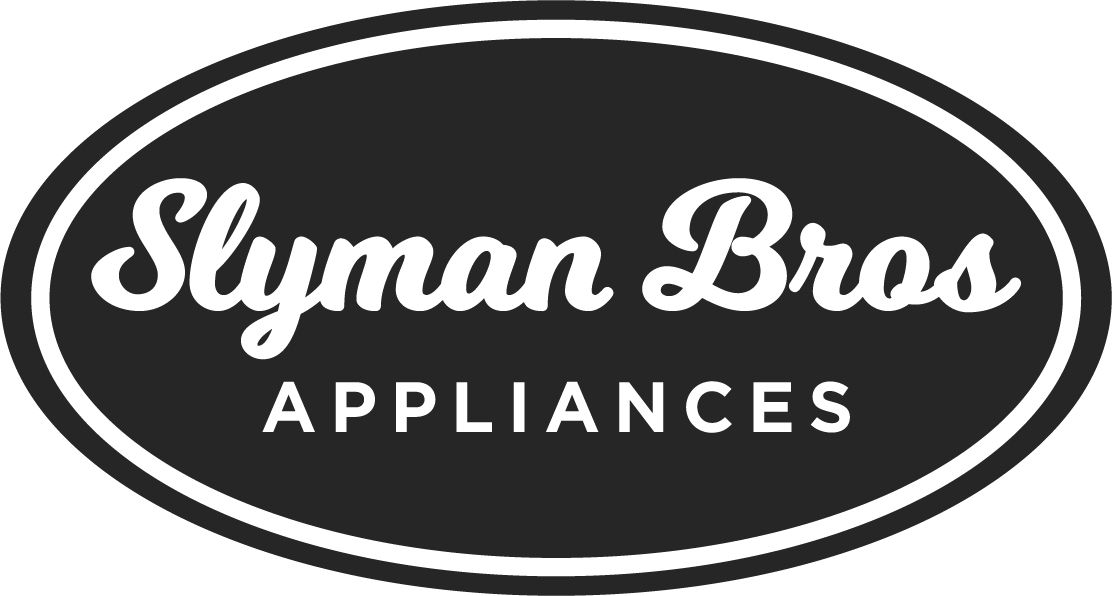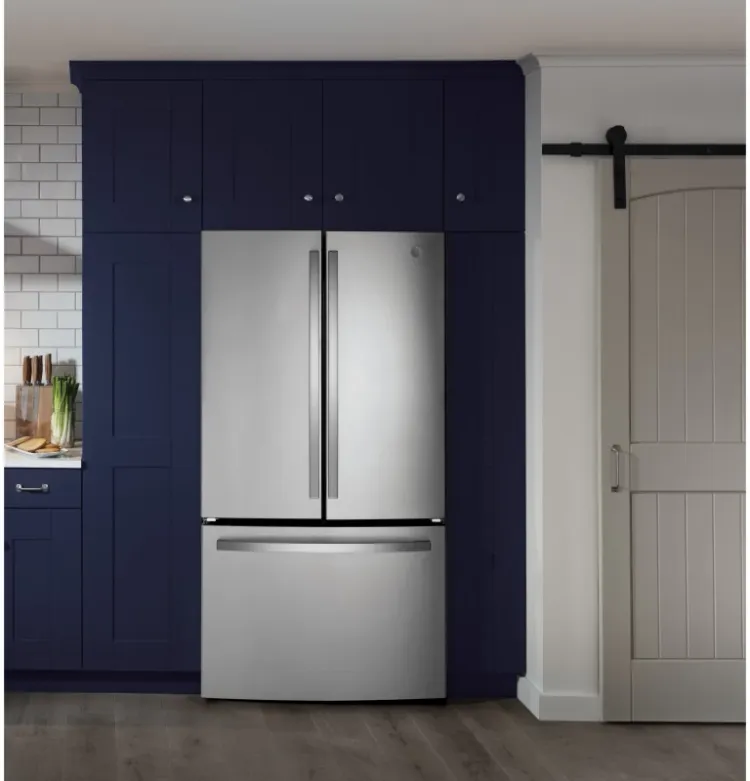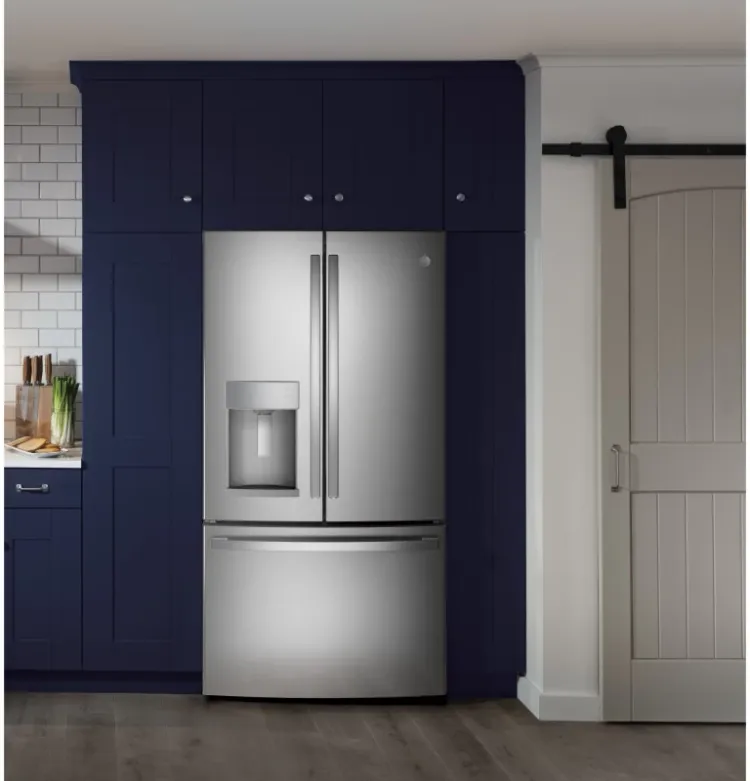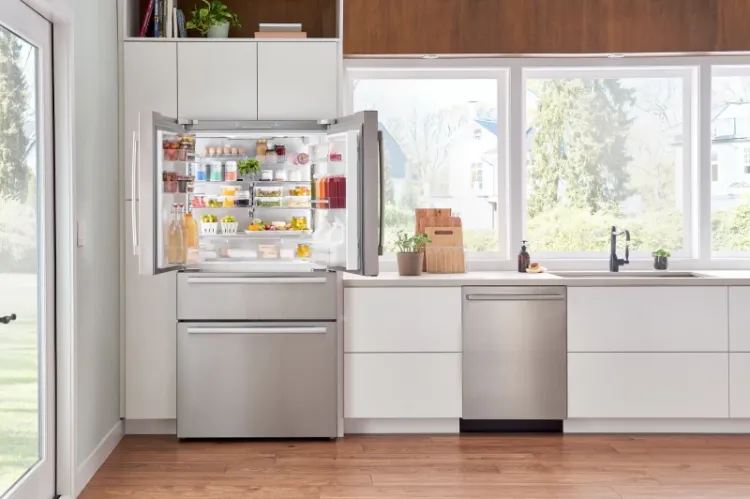Why Is My Fridge Leaking and How to Fix It
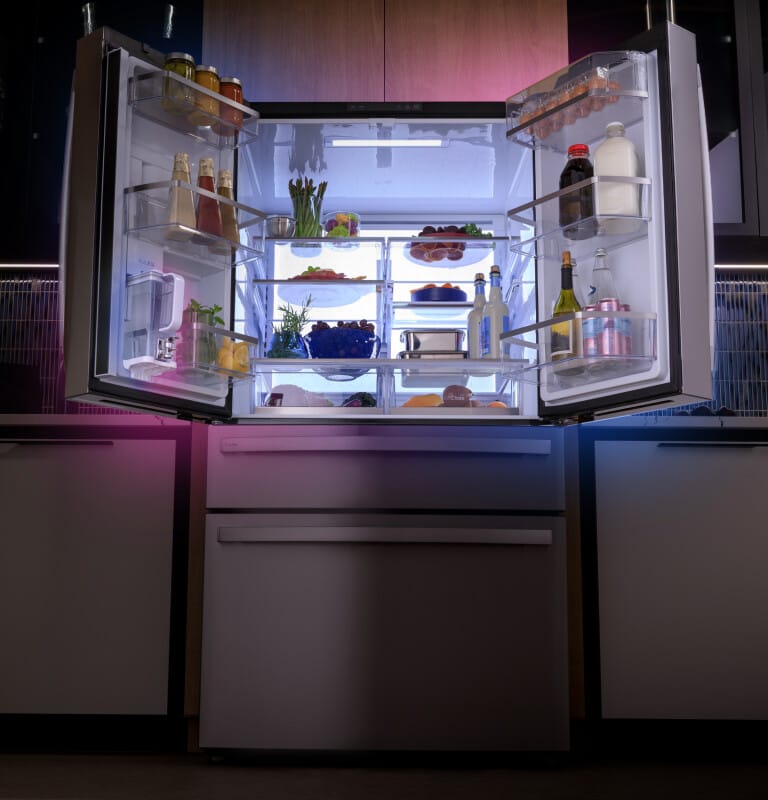
Have you ever walked into your kitchen only to find a mysterious puddle of water near your refrigerator? You're not alone. In fact, many homeowners find themselves puzzled by the question, "Why is my fridge leaking water?"
Understanding the reasons why your refrigerator leaks water from the bottom or inside is crucial. Leaks can range from just a simple nuisance to a symptom of a more significant issue.
Addressing these right away will not only to keep your kitchen dry but also to ensure a long-running refrigerator.
In this article, we'll dive into the common causes of fridge leaks, from a malfunctioning fridge water line to a fridge water dispenser leaking, and provide practical tips on how to stop your fridge from leaking water. Whether it's a pesky puddle of water or a steady drip from the ice dispenser, we've got you covered with solutions to keep your kitchen leak-free.
Identifying the Type of Leak
Fridge Leaking Water from the Bottom
If you find yourself mopping up a puddle of water around your refrigerator, it's likely you're dealing with a fridge leaking water from the bottom. Commonly, this issue arises from complications with the defrost drain or the drip pan. The defrost drain, prone to clogging with ice or food particles, can cause water to overflow and create a mini-flood on your kitchen floor. It's a good idea to regularly check for a clogged defrost drain. This could help prevent future issues.
Fridge Leaking Water Inside
On the flip side, noticing water inside your fridge, especially under the crisper drawers or on the top shelf, indicates a different problem. This type of leak is often due to a blocked or frozen water line. When this happens, the disruption can stop the functionality of the water dispenser or ice makers.
Spotting the Signs of Different Leaks
Understanding these leaks' unique signs is important for a quick and effective solution to common fridge problems. For instance, water accumulating on the floor near the front of the fridge usually suggests an issue with the fridge water line leaking or a fault in the water dispenser. Being vigilant about these signs will guide you to the right fix, saving your kitchen from unwanted water mishaps.
Common Causes of Refrigerator Leaks
A Blocked Defrost Drain: The Usual Suspect
As mentioned above, one of the most common culprits behind a fridge leaking water is a blocked defrost drain. Over time, food particles or ice can accumulate in the drain hose which builds up and leads to blockages. This obstruction causes water to pool and eventually leak out of the fridge. Which is why you might be seeing water near the bottom of your unit. Keeping an eye out for excess ice buildup or checking for any food particles that might be causing a blockage is a proactive step in preventing leaks.
Water Supply Line Woes: Inspection and Repair
The water supply line to your fridge is another critical area to examine. If your fridge water line is leaking, it could result in water spilling onto the floor. Regular inspection of the line for signs of damage or wear is essential. If you find any issues, repairing or replacing the water line is a pretty straightforward solution that can stop your fridge from leaking water.
Water Inlet Valve Issues: Know the Symptoms
A faulty water inlet valve is also another common issue that leads to leakage problems. If the valve is loose or broken, water can drip inside or outside the fridge. Symptoms of a faulty water inlet valve include unusual noises or the fridge water dispenser leaking. Replacing or tightening the valve can often resolve these issues.
John Guest Fittings: A Hidden Problem
Sometimes, the cause of the leak is a malfunctioning John Guest fitting. These fittings are used to connect water lines in your refrigerator. If they become loose or damaged, they can lead to leaks. By taking a look and doing regular checks you can ensure they are properly secured.
PVC Lines & Water Filter Complications: Easy Fixes
PVC lines and water filter issues are also common causes of fridge leaks. If these lines become damaged or the water filter is not fitted correctly, it can lead to water escaping. Checking these components and ensuring they are in good condition and correctly installed is vital.
Ice Maker Malfunctions: Spotting Trouble
Lastly, if your fridge has an ice maker, malfunctions in this feature can lead to water leakage. Identifying issues like overfilling or clogs in the ice maker can help you take quick action. Regular maintenance and timely repairs can also prevent these problems from turning into leaks.
Step-by-Step Guide to Troubleshooting and Repair
Tackling a leaking refrigerator can seem daunting, but with the right approach, it's a task you can often handle yourself. Here's a straightforward guide to help you solve the mystery and stop your fridge from leaking water.
DIY Fixes: The First Line of Defense Against a Leaking Fridge
Before calling in a professional, there are several DIY fixes you can try for your leaking fridge. These include checking for blockages, ensuring the fridge is level, and inspecting the water filter.
Leveling the Refrigerator: A Simple Yet Crucial Step
A fridge that isn't level can lead to various problems, including water leakage. Use a level to check your fridge’s balance and adjust the legs accordingly. This can often resolve minor leakage issues.
Unclogging or Defrosting Drain Lines
A common cause of leaks is a clogged or frozen drain line. To fix this, locate the drain hole (usually found at the back or bottom of the fridge) and use warm water or a drain snake to clear any blockages. This clear path should help stop any unwanted water from your drain lines
Checking Door Seals
Loose or damaged door seals can allow warm air into your fridge, causing condensation and leaks. Inspect the seals for any signs of wear or tear and clean them with a mild detergent. If they're damaged, consider replacing them.
Water Filter: Inspection and Replacement
A faulty water filter can also lead to leaks. Check if it’s correctly installed and replace it if necessary. Remember, regular replacement of your water filters is key to maintaining your fridge's efficiency.
Drain Line and Tube Maintenance: Clearing the Path
Ensure that the drain line and tube are not obstructed. You can clean these parts with a mixture of baking soda and warm water to prevent clogs and also eliminate odors.
Evaporator Coils and Ice Chute: The Final Frontier
Finally, inspect the evaporator coils and ice chute. Ice buildup in these areas can lead to leaks. Defrosting and cleaning them as per your fridge's manual can solve these issues.
By following these steps, you can often diagnose and fix common fridge leaking problems, saving time and avoiding the need for costly repairs. Remember, when in doubt, consulting a professional is always a safe bet.
When to Call a Professional To Fix Your Fridge
While many fridge leaks can be resolved with DIY methods, there are instances when the expertise of a professional is necessary. Knowing when to call in the experts can save you both time and the risk of further damage to your refrigerator.
Tackling Complex Issues: The Fridge Water Line Leaking
If you've attempted the usual fixes and still find your fridge water line leaking, it might be time to call a professional. This problem can be tricky, as it often involves working with water connections and potentially the refrigerator's internal mechanism.
Fridge Water Dispenser is Still Leaking
Similarly, a fridge water dispenser leaking is another scenario where professional help is advisable. These leaks can be the cause of more complex issues that require specialized knowledge and tools to fix.
Evaluating the Need for Professional Services
It's essential to evaluate the situation before doing any kind of repair. How severe is the leak? Have your attempts to fix it been unsuccessful? Are you comfortable and knowledgeable about the repairs needed?
If you're uncertain or the problem persists, seeking professional repair services is the best course of action. They can provide a thorough diagnosis and a more permanent solution, ensuring your refrigerator runs efficiently and leak-free. Remember, timely intervention by a professional can prevent minor issues from escalating into major problems, ultimately saving you money and extending the lifespan of your fridge.
Preventive Measures and Regular Maintenance
Taking steps to maintain your refrigerator can go a long way in preventing leaks. Regular cleaning and inspection are key to ensuring a puddle-free fridge. Here are some tips and insights on how to keep your refrigerator in top shape.
Regular Cleaning and Inspection: The First Line of Defense
Consistent cleaning and inspection of your refrigerator can significantly reduce the likelihood of leaks. This includes checking and cleaning the defrost drain and drip pan, ensuring the door seals are intact and debris-free, and inspecting the water lines for any signs of wear or leaks. You'll find that a clean fridge is less likely to encounter the common causes of leaks.
Keeping Puddles Away
To maintain a puddle-free fridge, monitor the areas prone to water buildup. Ensure that your fridge is level, as an uneven fridge can lead to water pooling. Regularly defrost your freezer and fridge, if they're not frost-free models. Ice buildup can lead to blockages and leaks.
Annual Maintenance: Ensuring Longevity
Incorporating an annual maintenance routine for your refrigerator is essential. This should involve a thorough cleaning of the coils, checking the functioning of the thermostat, and ensuring the water and ice dispensers are working correctly. Annual maintenance can identify potential problems before they become serious, saving you from future leaks and prolonging the life of your refrigerator.
Understanding the Lifespan of Your Refrigerator
Knowing the average lifespan of your refrigerator and recognizing the signs that it's time for a replacement are crucial in maintaining a functional and efficient kitchen. Understanding how leaks can affect this lifespan is also important.
Average Lifespan: What to Expect from Your Fridge
Most refrigerators have a lifespan of about 10 to 15 years, depending on the model, usage, and maintenance. Regular care and addressing problems like your fridge leaking water head-on can help maximize this lifespan, ensuring your refrigerator operates at tip-top form for as long as possible.
Signs It’s Time for a Replacement
There are several indicators that your refrigerator might be nearing the end of its lifespan. These include frequent and unexplained leaks, excessive noise, consistent overheating, and a noticeable decline in cooling efficiency. If you're facing persistent issues like a fridge water line leaking or a fridge water dispenser leaking, despite regular repairs, it might be time to consider a replacement.
The Impact of Leaks on Fridge Longevity
Leaks can significantly impact the longevity of your refrigerator. Continuous exposure to water can lead to rust on your unit and electrical issues. All of which shorten the life of your appliance. Addressing leaks as soon as they appear is crucial in protecting your fridge and regularly checking for signs of leaks, such as a puddle of water or moisture inside the fridge, can help in early detection and resolution.
Remember, addressing leaks promptly is not just about avoiding a puddle of water in your kitchen; it's about preserving the longevity and efficiency of your refrigerator. Regular maintenance and timely repairs can prevent minor issues from turning into major ones, saving you time, money, and the hassle of dealing with a broken fridge.
With the right knowledge and a bit of effort, you can keep your fridge running smoothly for years to come, ensuring that a small drip doesn't turn into a major home flood.
